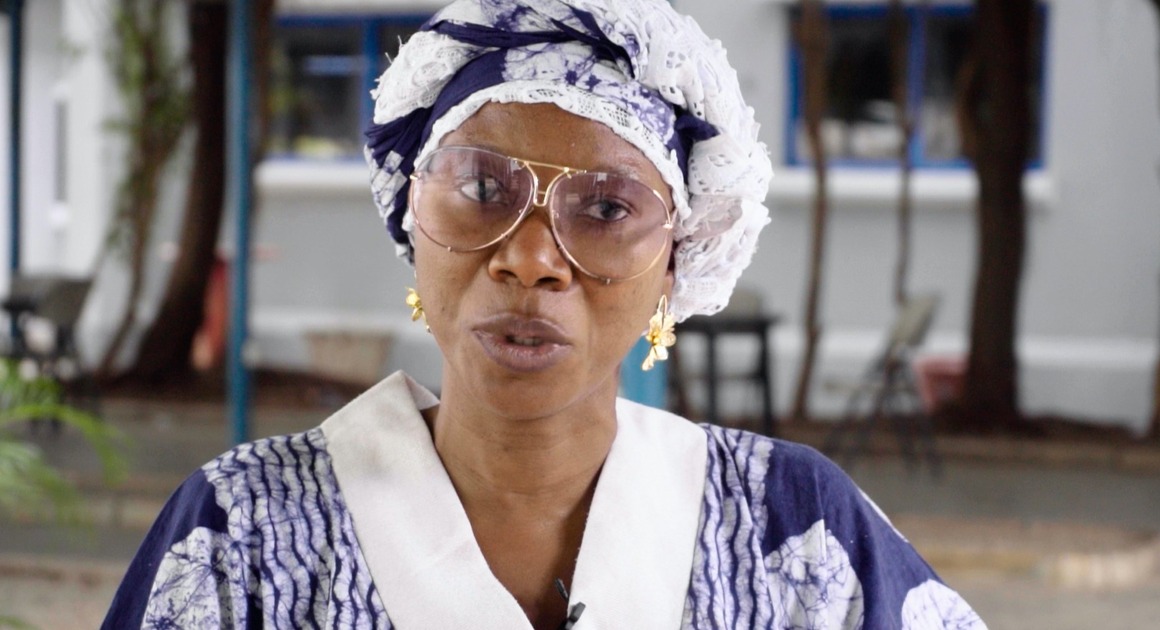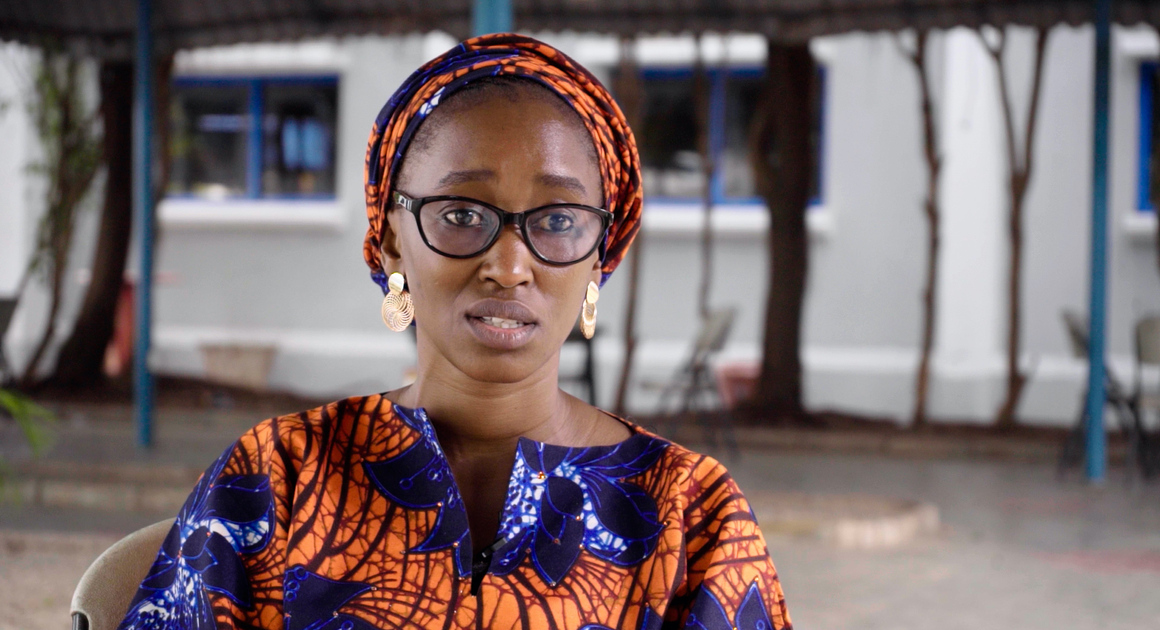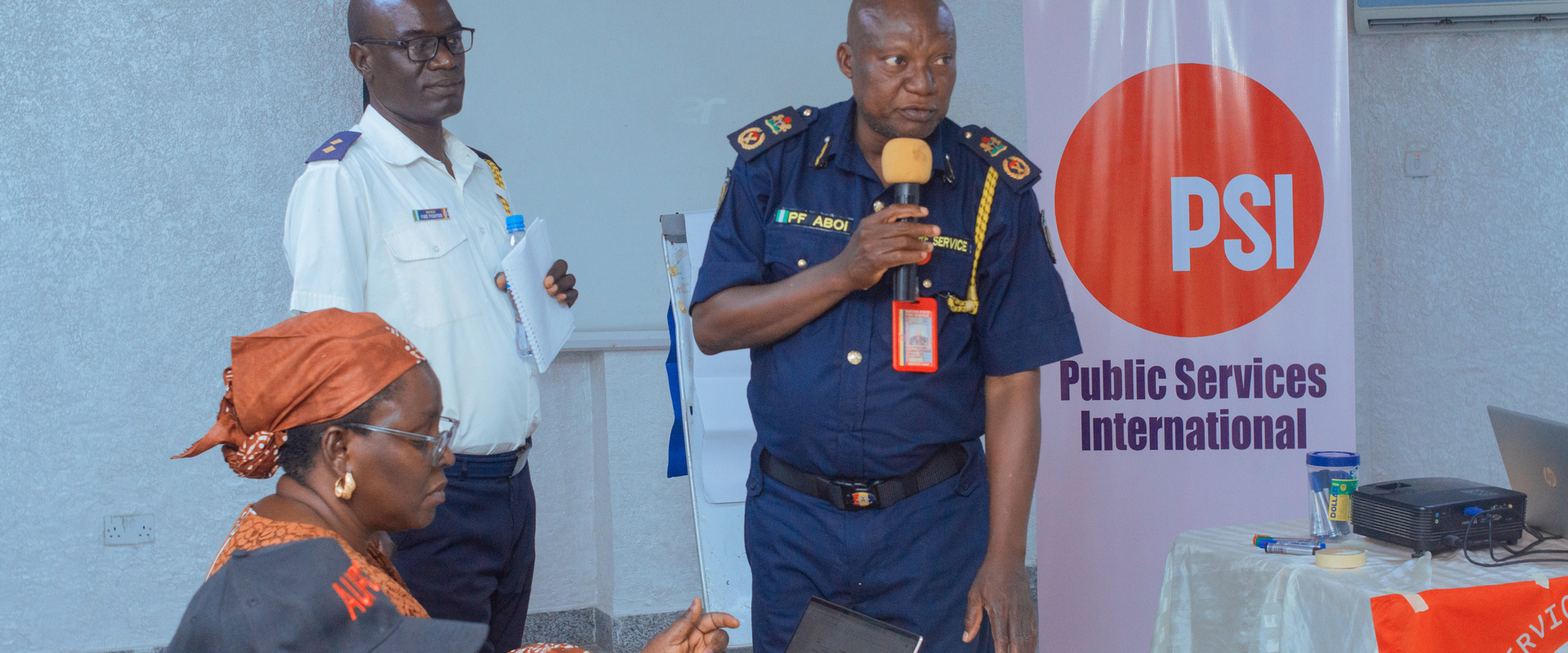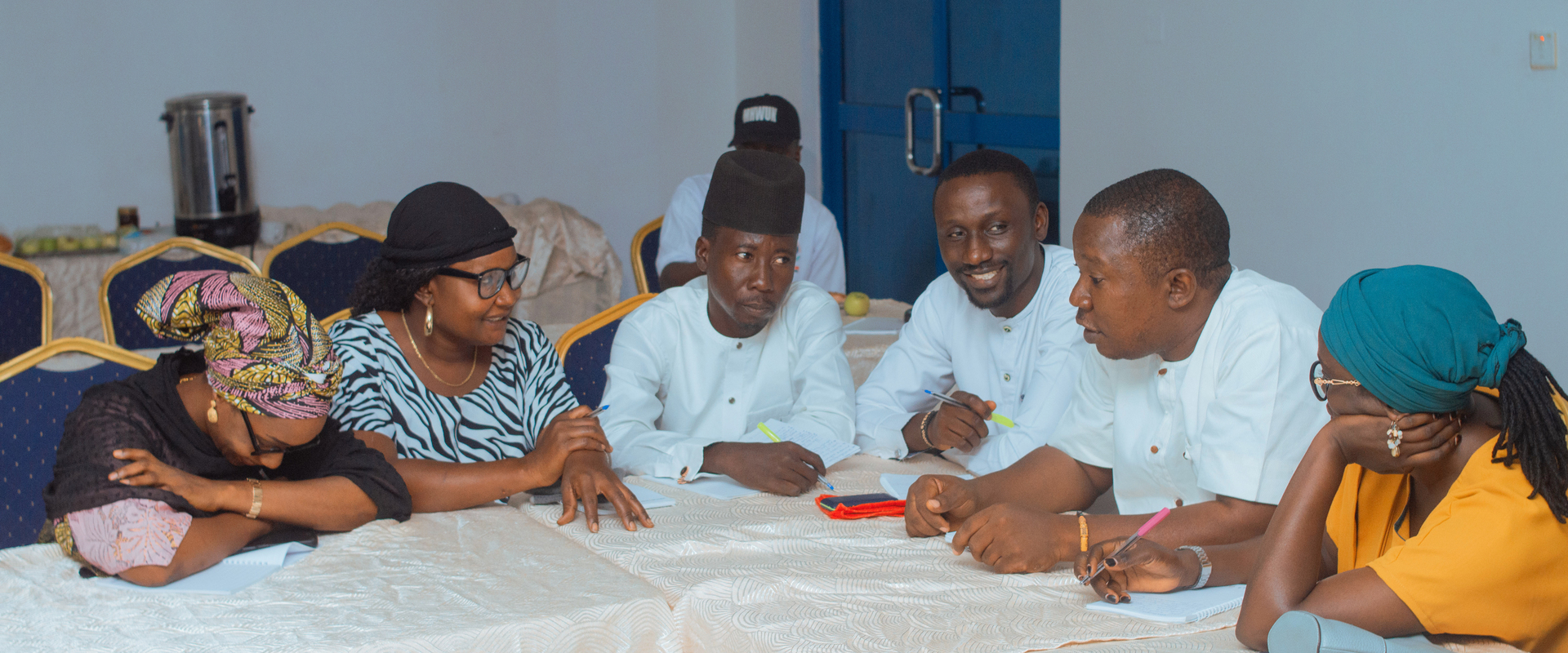
Moradeke Abiodun-Badru
FNV Project AUPCTRE Organises Emergency Workers in Kaduna
PSI and Union-to-Union supported AUPCTRE in organising frontline workers in the public emergency services sector in Kaduna, Nigeria. To improve the voice of emergency workers in organising, a two-day organising and training workshop took place from 26-27 May, 2025. This is part of the PSI Internally Displaced Persons (IDP) project in Nigeria which is aimed at strengthening the ability of frontline workers in the emergency sectors to have improved capacity to defend their rights and the rights of communities displaced by flooding, insurgency, and other natural or man-made disasters.
Unionising Emergency Workers in Kaduna State
During public emergencies, government agencies like the Kaduna State Fire Services, Kaduna State Traffic Law Enforcement Authority (KASTLEA), Kaduna State Property Development Company (KSPDC) and Kaduna Markets Development and Management Company (KMDMC), carry out public emergency services that directly and indirectly impact IDPs. AUPCTRE visited and built relationships with the agencies.
During the visit to the Kaduna State Fire Service, AUPCTRE found out that the agency, a critical frontline public emergency service, is grossly understaffed with only 69 staff service a population of nearly 10 million citizens. The director and staff of the agency also participated in the training. From the training, they understood how the union could support the agency in demanding its right and addressing the severe staffing shortages the agency faces.
Hauwa Jibril Participant

I am among those people that usually see unions and ask-what are they even doing? This is the first time I am coming for a training like this. And I also see the need for young workers like us to get involved so that when those ahead of us leave, they can pass the mantle to us.
Improving Workers’ Capacity to Demand Their Rights
Workers in the various emergency agencies were trained on the provisions of ILO Convention 190. C190 was new to most of the participants. After a gender and power analysis session, they gained an understanding about gender imbalance, gender-based violence and the inequality in their workplaces.
During an experience sharing session, participants noted that they thought workers in their agencies could not join unions or even demand their rights and entitlements because they might be seen as working against the government.
Salome Patrick Participant

The training gave me an opportunity to know that I have a right I need to demand. There were a lot of things that I wasn’t aware of. So this is an eye opener.
Waheed, the General Secretary of AUPCTRE, assured them that joining the union provides them the opportunity to have AUPCTRE fight on their behalf.
The training, among other things:
It built the capacity of over 26 union members to organise in the current world of work.
Participants developed an organising strategy for union activities in Kaduna State.
The leaders of the agencies received union registration forms and committed to on-boarding their staff into AUPCTRE.
For workers in public emergency agencies like the Kaduna State Fire Service, this training on organising has offered them opportunities to participate in union activities, both in their state and nationwide. For AUPCTRE, the activity has given them access to agencies that have been disconnected from union activities in the past. It has also provided an opportunity for workers to feel a sense of belonging and to collaborate in securing and defending their rights across the state.

The director, P.F. Aboi of the Kaduna state Fire Service making presentations on the status of the agency he heads.

Participants analysing the challenges in their agency, KASTLEA.